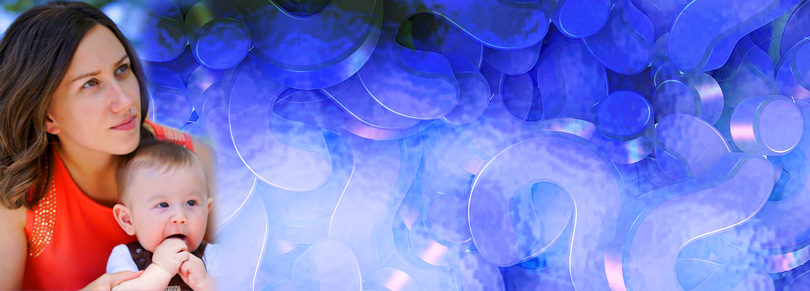The process of becoming a mother generally marks a wonderful event that encompasses discovery, learning, and a positive worthwhile experience. In this transformative experience, a new mother encounters a wide range of feelings. Happiness and excitement are usually at the top of the list, but not always. Some women find the transition into motherhood defined by an emotional roller coaster, physical exhaustion and relational frustration.
To gain a deeper understanding of this condition, which still has a stigma attached to it in India, we asked Dr. Jalaja Veronica, a Gynecologist / Obstetrician and Mrs. Olive Nagraj, a counsellor to shed some light on the topic. They provide in-depth insight into postpartum depression(PPD) and coping methods.
Q1) What is postpartum depression (PPD)?
Postpartum depression (PPD), also called postnatal depression, is a type of mood disorder associated with childbirth. Postnatal period is a fragile period for a woman in her life. There will be some hormonal changes in a woman’s body after childbirth. Add to that the sudden stress associated with looking after a little newborn, sleep disturbances, poor emotional support and the added financial burden are common triggers for depression.
Q2) What are some of the common symptoms of PPD?
Feeling sad, anxious and tearful, no interest in caring for self and the baby but overly worried about baby, sleep disturbances, sleeplessness, fatigue, poor coordination, feeling of guilt, worthlessness, hopelessness, feelings of hostility sometimes including thoughts of harming the baby, aggression, hallucinations, and suicidal tendencies. The early postpartum period is a crucial time to improve the health and survival of both the newborn and the mother. New mothers whose physical and psychological health needs are neglected develop a greater proneness to depressive symptoms.
Q3) How long can the symptoms last?
Symptoms may last up to several months or even a year.
Q4) Is PPD a common problem in India?
It is quite common in Indian women. The prevalence ranges from 11 to 26.3%. Factors like age, literacy status, socio economic status, sex of newborn, mode of delivery and unplanned pregnancy are significantly associated with the prevalence of PPD. But awareness and support for new mothers is still very less in many families. The severe forms are rare but in India PPD symptoms largely go undiagnosed or unattended.
Q5) What are the “Baby Blues” or Postpartum Blues?
The baby blues describe a temporary change in mood that affects up to 70% to 80% of new moms in the first week or two postpartum . Many new moms feel hypersensitive, anxious, emotional, irritable, and may have difficulty sleeping or experiencing elation. These symptoms tend to dissipate within several days and generally do not significantly interfere with functioning. If the “baby blues” continue for longer than 14 days, mothers may experience PPD.
Q6) What are some myths women have about PPD?
i)“ Having PPD makes me a bad mother. I don’t feel bonded or attached to my baby”. – Definitely not, as it is the hormonal changes that causes these mood changes, which are reversible if help is taken early and you can and will develop attachments to your baby.
ii) “PPD will go away on its own”- That is a misconception as it may lead to chronic depression and disrupt the family life for a long time, if unattended.
iii) “PPD happens immediately after the child is born”- No, it can start two weeks after child birth also and continue for six months to one year.
iv) “PPD is all my fault”. – Never, as it is dependent on your support system too. Low levels or inconsistent support and other psychological stressors in family life have been found to be strong
Q7) Could you share some experiences of women who have gone through PPD?
Some of the unattended silent cries of the young mothers who experienced PPD
i) “I started working from home within 10 days of my second delivery; compromised physical or emotional health slowly pushed me into depression.”
ii) “My in-laws wanting me to take a backseat and let them raise my son. The first two days after delivery, I did not even get to hold my son except when feeding. I felt disregarded and unwanted.”
iii) “When I went through PPD my husband had a misconception that I was being possessed by evil spirits and refused to take me to a doctor to clarify my doubts.”
Q8) Do moms with PPD have to take medication to be treated for postpartum depression or anxiety?
There are a variety of treatments for PPD, including psycho therapy, counselling and/or medication. Work with your doctor to identify the best treatment options. Taking any anti-depressant medication without the prescription of the specialist is harmful. Also, those who take medication should not stop or reduce the dose without discussing it with the doctor. Doing that to yourself could do more harm than good. predictors of postpartum depression.
Q9) What are some tips to cope with PPD?
Awareness is key: When a new mother is angry and depressed, saying she doesn’t want to hold her baby, instead of reacting with dismissal or anger, act wisely to find the right solution.
|
“Where there is no guidance the people fall, but in abundance of counselors there is victory.” Proverbs 11:14 (Bible)
Q10) What advice do you have for a husband on how to cope with his wife’s PPD?
i) Educating yourself to understand depression will help you identify your spouse’s depressive behaviours and patterns. I encourage you not to educate your wife about what she is going through.
ii) Taking care of yourself is very important as you may have to take care of the baby, your wife and also the house-hold responsibilities. These new and exhaustive responsibilities can destroy your joy and drain your energy, sending you on a downward spiral, resulting in physical fatigue and a sense of feeling psychologically and emotionally “drained”. Create a support system of good friends and family members to support you.
iii) There may be a tendency of distancing yourself from friends and family feeling ashamed of what is happening in the family. But, please do not allow yourself to stay isolated from your support system of friends and family.
iv) Make an effort to remain connected with your wife though she may try to remain distant from you as she could be feeling ashamed, worthless and insecure. Gently encourage her positively with hopeful words. Encourage her to seek outside support and the needed professional help.
v) Your spouse’s postpartum depression isn’t a choice . It’s an illness. Depend on God’s strength to love and support your wife unconditionally which will signiFIcantly contribute to her speedy recovery.
vi) Importantly, if you are feeling overwhelmed, struggling to manage the over-powering feelings on your own, fix an appointment with a professional counsellor who can help you deal with your struggles.
vii) Hope is the main ingredient of change. Never lose hope in the Almighty God with whom all things are possible.
|
Sources: https://www.goodtherapy.org/learnabout- therapy/issues/postpartumdepression# Signs of Baby Blues www.goodtherapy.org For Dads: What To Do, What Not To Do When Your Wife Has PPD | Psychology Today www.psychologytoday.com In the Valley of Postpartum Depression | CT Women | Christianity Today www.christianitytoday.com How The Myth Of ‘Blissful Motherhood’ Contributes To Postpartum Depression www.huf |






Leave a Comment